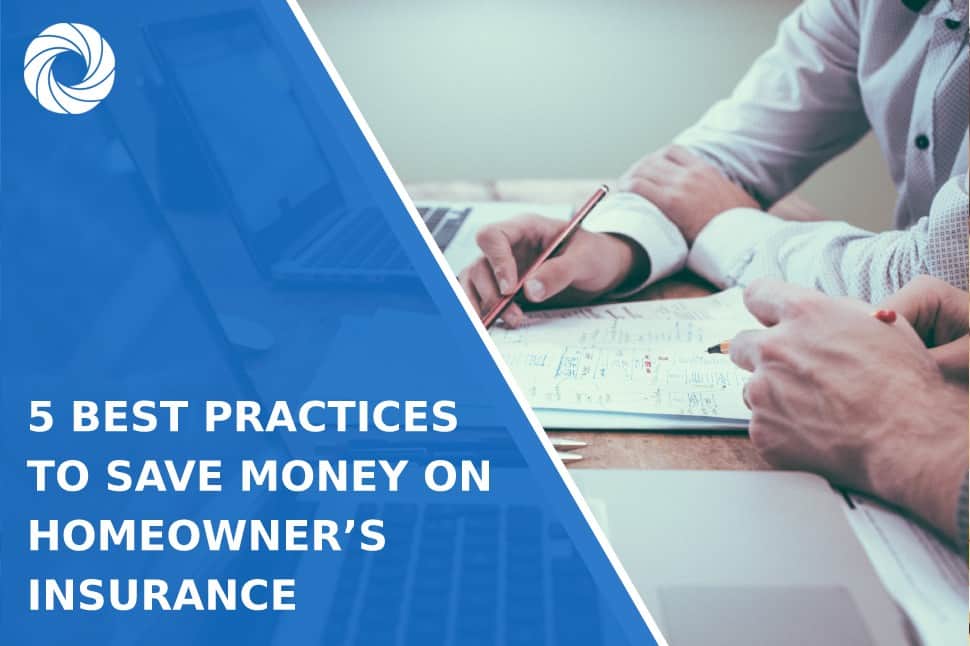Entering the home buying process, especially for the first-time home buyer, is an exhilarating journey filled with potential challenges. Of all these, homeowner's insurance is among the most important, yet often the most overlooked. This form of insurance provides an essential safety net, shielding you from substantial financial losses that could result from damage to your property or liability issues.


Buying a home is a major investment, often the largest one many people will make in their lives. Given the substantial financial commitment involved in this process, house owner's insurance becomes more than just a requirement; it's a vital tool for protecting your investment. It safeguards you against potential perils, such as fire, theft, or damage from certain natural disasters.
Moreover, it provides liability coverage, guarding you against potential lawsuits from incidents on your property. Beyond these practical benefits, having a robust homeowner's insurance policy delivers peace of mind, allowing homeowners to sleep comfortably knowing their investment is protected.
Deciphering Insurance Policies
Understanding your homeowner's insurance policy can feel like decoding a complex language. The insurance world is rife with jargon that can be daunting for the uninitiated. However, developing a working knowledge of this language is critical to making informed insurance decisions.
Evaluating Coverage
The extent of coverage is one of the most important elements of your insurance policy. This can broadly fall into two categories: replacement cost and actual cash value. Replacement cost is the amount it would take to replace or rebuild your house or repair damages using similar materials without deducting for depreciation. In contrast, actual cash value is the amount it would take to repair or replace damage to your home after depreciation.
Balancing Cost and Coverage
When it comes to insurance, striking the right balance between cost and coverage is essential. You need enough coverage to protect your house and belongings fully, but you also don't want to overpay for unnecessary coverage. Understanding the value of your home and personal property can help you make informed decisions about your policy limits. Remember, it's about securing the best value, not necessarily the lowest price.
Savvy Strategies for Saving on Insurance
So, how to buy a home and secure comprehensive insurance without breaking the bank? There are several strategies and home insurance tips that homeowners can adopt to economize on their insurance premiums.
- Shop for the Best Rates – Like any other product or service, it's wise to shop around for homeowner's insurance. Premiums can vary significantly from one provider to another. Obtain quotes from multiple insurance companies and compare the rates and the extent of coverage they provide. Be thorough in your comparisons to ensure you're getting the best deal.
- Consider Raising Your Deductible – The deductible is the amount you'll pay out of pocket before your insurance coverage kicks in. Opting for a higher deductible can significantly lower your premiums. However, ensure you have enough savings to cover the deductible in case of a claim.
- Maintain a Strong Credit Score – Your credit score is more than just a number; it can impact your insurance rates. Many insurers use credit information to price homeowner's insurance policies. A good credit score could translate to lower premiums. Regularly check your credit report for errors, pay your bills on time, and manage your credit prudently to maintain a good credit score.
- Disaster-Proof Your Home – Insurance companies often offer discounts for houses that are less likely to be damaged by disasters. This could involve installing storm shutters, reinforcing your roof, or retrofitting an older home to make it more resilient to earthquakes. While this requires an initial investment, it can lead to long-term savings on your insurance premiums.
- Leverage Available Discounts – Take full advantage of available discounts. These can range from bundling your house and auto insurance with the same company, installing a home security system, or even being a non-smoker. Discounts vary by company and location, so don't hesitate to ask what discounts are available when shopping for policies.
Regular Policy Reviews: An Insurance Must
One of the most common oversights made by homeowners is the failure to conduct regular reviews of their insurance policies. It is imperative to understand that as your life evolves, so do your insurance requirements.
For instance, you may have recently undertaken a significant home renovation project, which could have a substantial impact on the value of your property. Similarly, your house's market value might have experienced an increase due to various factors. In both cases, it becomes crucial to reassess your coverage to align it with your current circumstances.
Regularly reviewing your policy enables you to ensure that your insurance adequately meets your present needs, avoiding any potential gaps in coverage and maximizing your financial protection. By neglecting this crucial task, you may inadvertently be leaving valuable benefits and potential savings untapped.
Grasping the intricacies of homeowner's insurance and employing these strategies can save you a significant sum over the long term. The house buying process, particularly for first-time home buying, can be rife with confusion.
However, an understanding of homeowner's insurance can help alleviate some of this uncertainty, placing you firmly on the path to financial stability. Remember, knowledge is power. Empower yourself to make informed insurance decisions, and enjoy the peace of mind that comes with knowing your largest investment is well protected.
